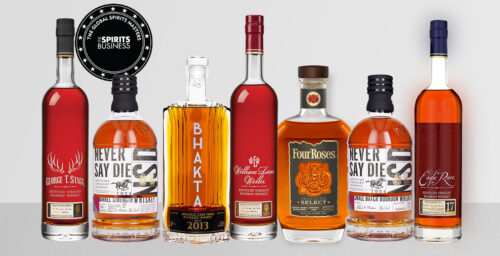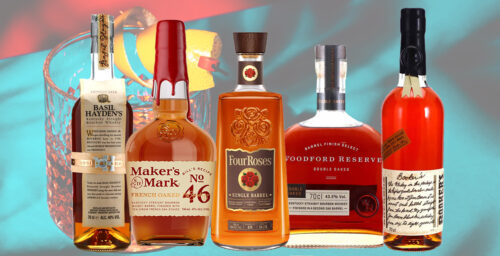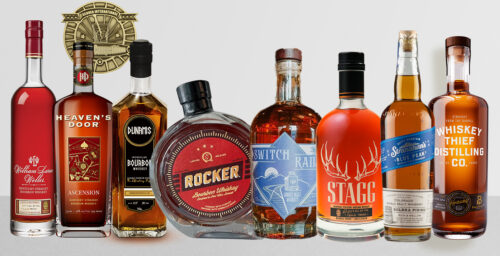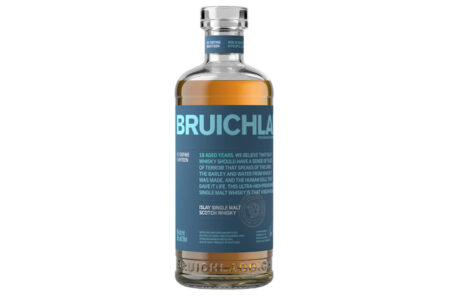Editor’s Note: This guest post comes to us courtesy of Pillsbury Winthrop Shaw Pittman LLP, a full-service law firm with an industry focus on energy & natural resources, financial services including financial institutions, real estate & construction, and technology. Author credit goes to Christine A. Scheuneman and Elaine Lee. We appreciate their permission to reprint it.
The recent market for artisanal and handcrafted goods has spawned a spate of consumer class actions against makers of popular liquors, including Tito’s Vodka, Maker’s Mark, and Jim Beam, for using terms like “handmade,” “handcrafted,” and “small-batch” on the labels of their products. Recent decisions by courts across the country give insight into how the issues might be decided.
The recent, explosive popularity of goods described as “handmade,” “handcrafted,” “small-batch” and the like has prompted makers of liquors to take advantage of the positive associations consumers have with these descriptors and emphasize those qualities in their products by including them on their labels. Consumers—and the plaintiffs’ bar—have noticed: Within the last year, at least eight liquor makers have been sued in multiple consumer class actions across the country. Maker’s Mark, Jim Beam, Tito’s Vodka, Templeton Rye, WhistlePig, Tincup, Angel’s Envy, and Breckenridge Bourbon all face suits in district courts including in California, Illinois, and Florida. These suits allege deceptive advertising and unfair competition under state laws1 for defendants’ use of the language on their labels: “handmade,” “hand-crafted” and “small-batch.” While most of these cases are still pending, a few recent decisions indicate how courts are considering the issues and defining the terms.
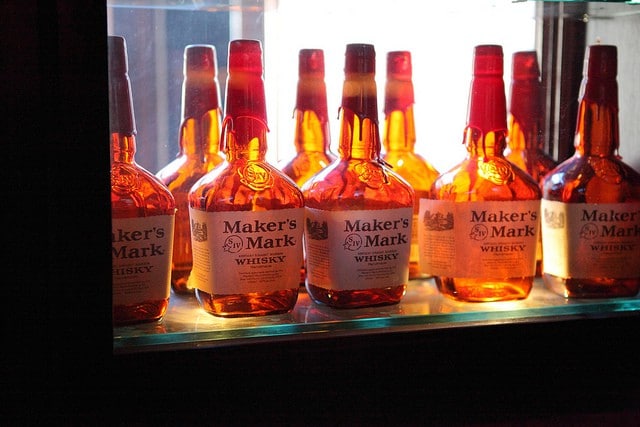
TTB Label Approval Would Not Likely Entitle Defendants to Protection of State Safe Harbor Provisions
When filing their motions to dismiss the claims against them, liquor makers have argued that they are protected from consumer claims under state safe harbor provisions because the federal Alcohol and Tobacco Tax and Trade Bureau (“TTB”) has pre-approved their labels. TTB is charged with regulating the alcohol industry and pre-approves all labels on liquor. This argument, however, has been struck down by both the California and Illinois District Courts at the motion to dismiss stage. First, in Hofmann v. Fifth Generation, Inc.,2 brought against the maker of Tito’s Vodka, the Court ruled that California safe harbor provisions may not extend to “informal agency action” like TTB approval of labels, and it is unclear if the meaning of the word “handmade,” which is prominently displayed on the label, is even within the purview of the TTB. Similarly in Aliano v. WhistlePig LLC3, brought against the maker of WhistlePig whiskey, the Northern District of Illinois was not convinced that TTB approval was stringent enough to warrant dismissing the case. There was no evidence presented that the terms in dispute (that WhistlePig was “hand bottled at WhistlePig Farm”) were expressly reviewed and approved or that the TTB affirmatively investigated or confirmed the validity of the “hand bottled” representation. It was also not clear to the Court that TTB even has criteria for evaluating the term.
Courts Are Split on Whether a “Reasonable Consumer” Could Be Deceived by the Term “Handmade”
While Tito’s argued in Hofmann that no reasonable consumer could be deceived by the word “handmade” on its label because vodka, by definition, is created by heating neutral spirits and distilling vapors which any reasonable person would know must be done by using some sort of equipment, the Southern District of California did not agree and found that at the motion to dismiss stage, there is still the possibility that a reasonable consumer could be misled. On the other hand, the Northern District of Florida in Salters v. Beam Suntory, Inc.,4 involving Maker’s Mark Bourbon, granted Maker’s motion to dismiss, in part because it definitively found that “nobody could believe a bourbon marketed this widely at this volume is made entirely or predominantly by hand.”
The Burden is Likely on the Plaintiff to Meet the Difficult Task of Defining “Handmade”
In dismissing the Salters case, the Florida District Court clearly put the burden on the plaintiffs to define “handmade” as a necessary part of alleging reliance on the term. The Court considered various definitions of “handmade” and found each lacking or inapplicable. To the Oxford English Dictionary definition of “handmade” as “distinguished from work of nature,” the Court said that bourbon, like coffee or orange juice, cannot be grown in the wild. The plaintiffs proposed definitions of “made by scratch” and “made in small units.” The Court found no evidence that Maker’s Mark bourbon did not fit those requirements. To plaintiffs’ alternative definition of “connotes greater value and trades on current fashion that also brought us craft beer,” the Court ruled that “a general, undefined statement that connotes greater value, detached from factual representation, is not actionable.” Such a definition is just a “statement of puffery.” Just as with cases involving use of the term “all natural” (see, for example, Pelayo v. Nestle USA, Inc., 2013 WL 5764644 (C.D. Cal. Oct. 25, 2013), where the plaintiff’s claim was dismissed for failure to provide enough detail as to why the offending ingredients are unnatural), the burden is likely on the plaintiffs to define “handmade” or similar terms—a difficult task, as demonstrated by the Salters case.
Individual Characteristics of the Product May Make a Difference
Considerations such as whether a reasonable consumer would be deceived and whether a consumer actually relied on the label at issue may be affected by the individual characteristics of the product. For example, the term at issue is displayed prominently on some labels, such as “handmade” on the label of Tito’s Vodka, whereas on others, it is only printed on the side of the label, such as “handcrafted” on the label of Jim Beam Whiskey. Depending on how a liquor is actually made, a maker may have a better chance at qualifying as “handmade” under certain definitions. Because Maker’s Mark was able to claim that its product is made from scratch and in small, carefully tended batches, it was able to overcome two of the definitions of “handmade” offered by the plaintiffs in Salters.
Download: The Label on Your “Handmade” Whiskey Is Causing More Problems Than You Think
- A suit has not yet been brought under federal law, although federal law and TTB regulations prohibit false and misleading labeling statements, 27 U.S.C. §205(e); 27 C.F.R §5.42(a)(1).
- Case No. 3:14-cv-02569 (S.D. Cal. Mar. 18, 2015).
- Case No. 1:14-cv-10148 (N.D. Ill. May 18, 2015).
- Case No. 4:14-cv-00659 (N.D. Fl. May 1, 2015).

